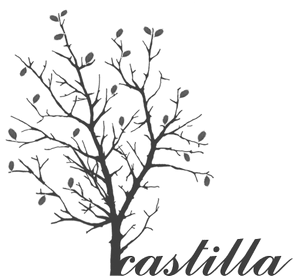Focal strategies for a critical memory of the Mexican Revolution in Elena Garro's «Felipe Ángeles» and Maruxa Vilalta's «1910»
DOI:
https://doi.org/10.24197/cel.16.2025.340-361Keywords:
Mexican Revolution, dramatic focalisation, Elena Garro, Maruxa Vilalta, memoryAbstract
This article presents an analysis of two plays that develop an innovative exercise of critical memory on the historical myth of the Mexican Revolution: Elena Garro’s Felipe Ángeles (1979) and Maruxa Vilalta’s 1910 (2002). Both pieces undertake exercises in questioning the meta-narratives that surrounded the Revolution, proposing new points of interest to pay attention to, but from different strategic focal points. Garro leans towards methodological individualism and heroic construction. Vilalta gives protagonism to collective subjects framed in everyday life. This contrast opens up a broader debate on the agency of History, that is, who are the real motors of social change.
Downloads
References
Bartra, Roger (1996). La jaula de la melancolía. México D.F.: Grijalbo.
Benjamin, Thomas (2000). La Revolución: Mexico’s Great Revolution as Memory, Myth, and History. Austin: University of Texas Press.
Benjamin, Walter (2005). Tesis sobre la historia y otros fragmentos. Ciudad de México: Contrahistorias.
Benjamin, Walter (2010). “Sobre el lenguaje en general y sobre el lenguaje de los hombres”. En Ensayos escogidos. Buenos Aires: El Cuenco de Plata, pp. 127-148.
Carballo, Emmanuel (1986). Protagonistas de la literatura mexicana. México D.F.: Ediciones del Ermitaño.
Dowd, Jerome (1936). Control in Human Societies. Nueva York: Appleton-Century.
Enríquez, José Ramón (2002). “Introducción”. En Maruxa Vilalta, 1910 y tres obras más. México D.F.: Fondo de Cultura Económica, p. 17.
Gamboa Valles, Jesús Manuel (2018). “Adaptación y legitimación: el aprovechamiento del material histórico de Felipe Ángeles, de Elena Garro”. Literatura Mexicana, 30(1), pp. 67-88.
García Ramírez, Sergio (2002). “Presentación”. En Maruxa Vilalta, 1910 y tres obras más. México D.F.: Fondo de Cultura Económica, pp. 18-20.
Garciadiego, Javier (2001). “La Revolución mexicana: el reto de la Historia reciente”. Historia mexicana, 71(1), pp. 249-270.
Garro, Elena (1979). Felipe Ángeles. México D.F.: Universidad Nacional Autónoma de México.
Genette, Gérard (1989). Figuras III. Barcelona: Lumen.
Girard, René (1984). Violence and the Sacred. Trad. Patrick Gregory. Baltimore: Johns Hopkins UP.
Grützmacher, Lukasz (2006). “Las tramas del concepto «nueva novela histórica» y de la retórica de la historia postoficial”. Acta Poética, 27(1), pp. 141-167.
Halbwachs, Maurice (1995). “Memoria colectiva y memoria histórica”. REIS: Revista Española de Investigaciones Sociológicas, 69, pp. 209-222.
Haraway, Donna (2022). La teoría de la bolsa de la ficción. Buenos Aires: Rara Avis.
Hobsbawm, Eric (1987). El mundo del trabajo. Estudios históricos sobre la formación y evolución de la clase obrera. Barcelona: Crítica.
Lyotard, Jean-François (1987). La condición posmoderna. Informe sobre el saber. Madrid: Cátedra.
Magnarelli, Sharon (2001). “Telling Stories: Martha Stutz de Javier Daulte”. Latin American Theatre Review, 35 (1), pp. 5-16.
Magnarelli, Sharon (2002a). “Narrative Games in Alejandro Tantanián’s Juegos de damas crueles”. Gestos, 34, pp. 93-106.
Magnarelli, Sharon (2002b). “La historia puesta en escena: 1910 de Maruxa Vilalta”. Teatro XXI. Revista del Getea, 14, pp. 3-7.
Magnarelli, Sharon (2003). “Women and Revolution: Maruxa Vilalta’s 1910”. Latin American Theatre Review, 37(1), pp. 5-23.
Maslow, Abraham (1965). “Humanistic Scince and Transcendent Experiences”. Journal of Humanistic Psuchology, 5(2), pp. 219-227. https://doi.org/10.1177/002216786500500211
Muncy, Michele (1986). “Encuentro con Elena Garro”. Hispanic Journal, 7(2), p. 70.
Ngozi, Chimamanda (2018). El peligro de la historia única. Barcelona: Literatura Random House.
Schaff, Adam (1982). Historia y verdad. Ensayo sobre la objetividad del conocimiento histórico. México: Grijalbo.
Stern, Steve (2000). “De la memoria suelta a la memoria emblemática: hacia el recordar y el olvidar como procesos históricos (Chile, 1973-1998)”. En Miriam Olguín Tenorio (ed.). Memoria para un nuevo siglo. Chile: miradas a la segunda mitad del siglo XX. Santiago: LOM Ediciones, pp. 11-33.
Strathern, Marilyn (1992). Reproducing the Future: Essays on Anthropology, Kinship and the New Reproductive Technologies. Manchester: Manchester University Press.
Toruño, Rhina (1996). Tiempo, destino y opresión en la obra de Elena Garro Lewiston/Grand Turk: Mellen University Press.
Tozzi, Verónica (2009). La historia según la nueva filosofía de la historia. Buenos Aires: Prometeo.
Vilalta, Maruxa (1972). Teatro I. México D.F.: Fondo de Cultura Económica Europea.
Vilalta, Maruxa (2002). 1910 y tres obras más. México D.F.: Consejo Nacional para la Cultura y las Artes de México.
Weber, Max (1978). Ensayos sobre metodología sociológica. Buenos Aires: Amorrortu.
White, Hayden (1992). Metahistoria. La imaginación histórica en la Europa del siglo XIX. México D.F.: Fondo de Cultura Económica.
Zinn, Howard (2021). La otra historia de los Estados Unidos. Logroño: Pepitas de Calabaza.
Downloads
Published
Issue
Section
License
Copyright (c) 2025 Maravillas Moreno Amor

This work is licensed under a Creative Commons Attribution 4.0 International License.
The articles published at Castilla. Estudios de Literatura will have a Creative Commons Attribution 4.0 International License (CC BY 4.0).
The authors continue as owners of their works, and can republish their articles in another medium without having to request authorization, as long as they indicate that the work was originally published in Castilla. Estudios de Literatura.



